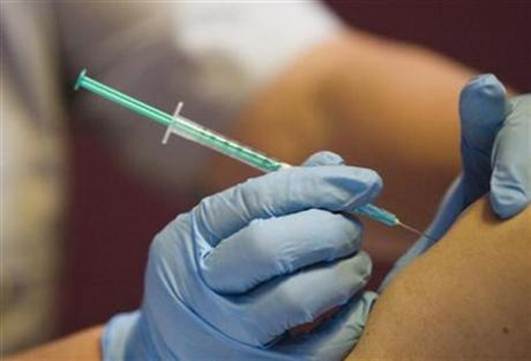Vaccinations aren’t only for babies and
toddlers according to a strict schedule, booster doses, eta! Adults need them
too. Depending on your circumstances, your age, health history, childhood
vaccinations, occupation and travel plans, you may be advised to have certain
immunization shots. Here’s a handy guide.
Immunization helps the body to fight off certain
disease-causing bacteria or viruses. There are two kinds — active and passive —
which offer protection —not only for baby but for you.
In active immunization vaccines (or
toxoids) are used to help prevent infection by stimulating the body’s natural
defense mechanisms. They are a suspension of either non-infectious fragments of
bacteria or viruses or entire forms of these organisms that have been weakened
so that they do not cause infections.

Immunization
helps the body to fight off certain disease-causing bacteria or viruses.
The body’s immune system responds to a
vaccine by producing substances (such as anti and white blood cells) that go on
high alert and attack the specific intruder, contained in the vaccines. What
happens is that these antibodies and other substances are then automatically
produced whenever you are later exposed to the self same baddies. The process
of injecting the vaccine is called vaccination.
In passive immunization antibodies against
a specific infectious organism are given directly to you if your immune system
doesn’t respond adequately to an infection or if you acquire an infection
before you can be vaccinated.
For example, Rustom B. was bitten by a
stray dog and needed an anti-rabies shot and Reena had her foot run over by a
hand cart and took an anti-tetanus injection.
Passive immunization can also be used to
prevent disease when exposure is likely and you do not have time to get or
complete a vaccination series. This could be gamma globulin (an antibody
preparation) to help prevent hepatitis when there is a patient in the family
suffering from the ailment.
Passive immunization lasts for only a few
days or weeks, until the body eliminates the injected antibodies.

The
process of injecting the vaccine is called vaccination.
Vaccines and toxoids are available to
immunize against many deadly infections including chicken pox, cholera,
diphtheria, hepatitis A + B, influenza, measles, mumps, plague, polio, rabies,
typhoid, typhus, whooping cough, yellow fever.
Small pox, a once deadly infectious
disease, has been eradicated world-wide through immunization. However because
the vaccine’s protective effect wears off after about 10 years and fears about
the possible use of small pox by terrorists, health authorities in the West
have suggested that the vaccine be resumed.